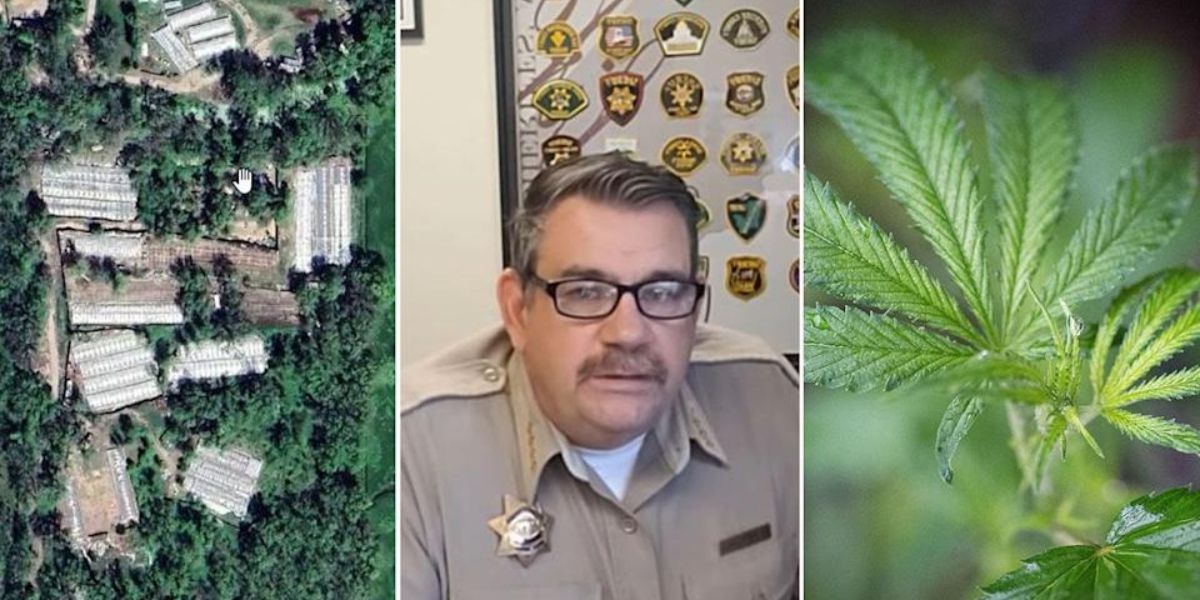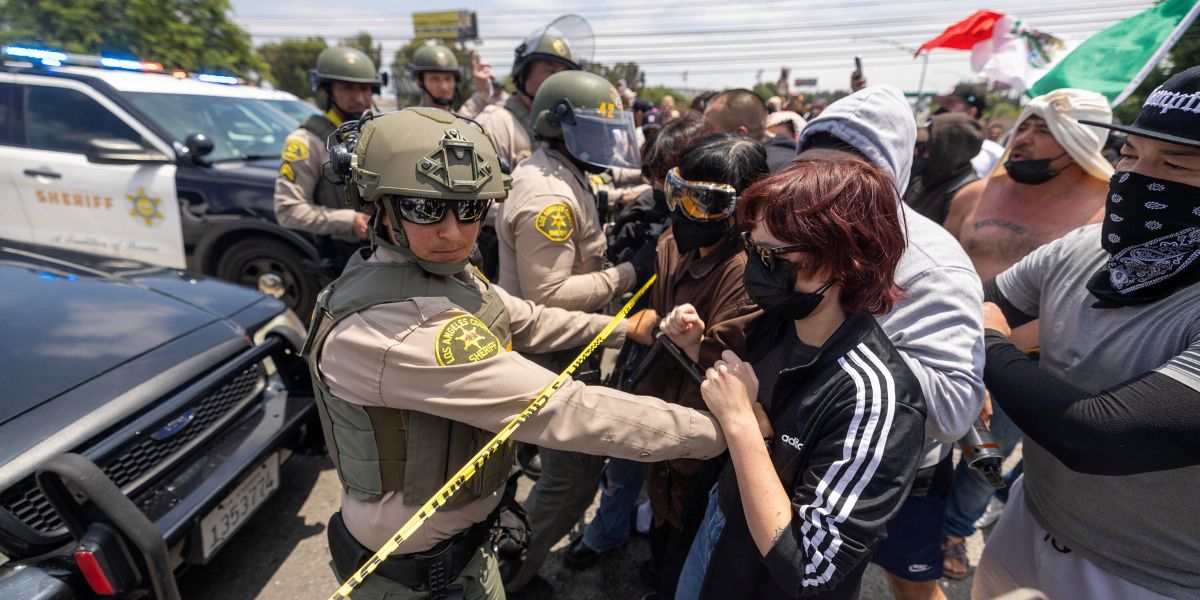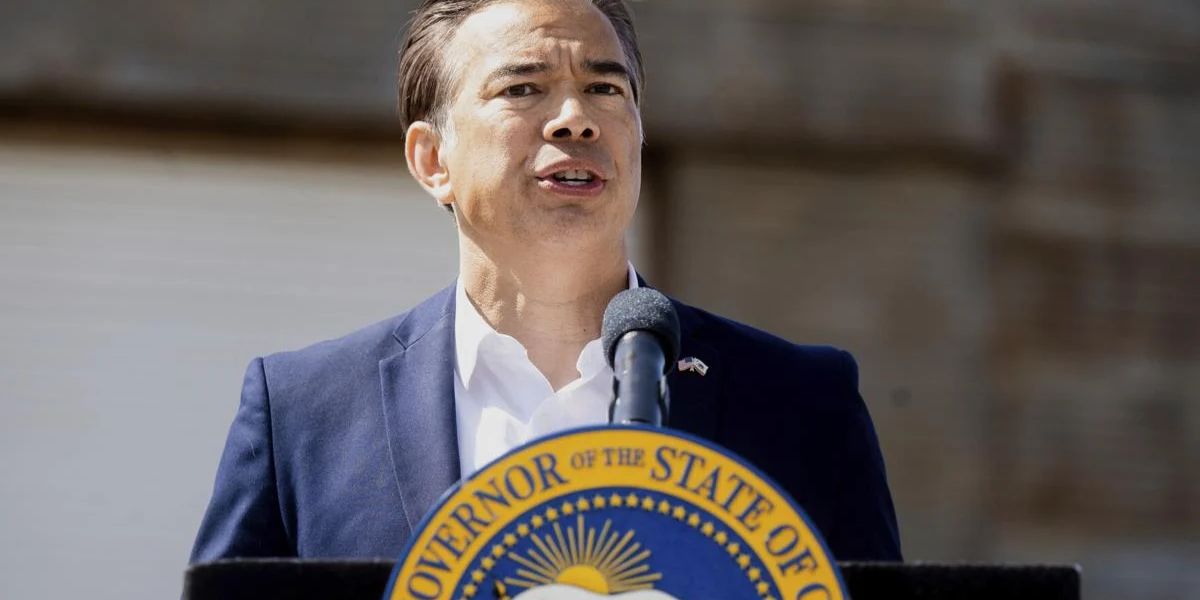Mendocino County Sheriff Matthew Kendall is defending his office’s actions after being accused by a Native American tribe of overstepping his jurisdiction during raids on cannabis farms located on tribal land. The controversy stems from the sheriff’s office conducting several raids in Round Valley last year, an area that Kendall described as increasingly affected by illegal drug cartel activity.
Sheriff Kendall’s Defense: Public Safety Concerns
In an interview with Fox News Digital, Sheriff Kendall addressed the growing concerns in the region, saying his office was responding to requests for help from tribal members. These individuals, he stated, had reached out to him, requesting action due to escalating violence and the presence of illegal marijuana farms linked to drug cartels.
“They’re begging me, saying, ‘Please, we’ve got gunshots going on all night, all around us,’” Kendall said. “These people are tribal members as well as people who aren’t tribal members. I have to go up and protect these folks.”
Sheriff Kendall’s office conducted multiple raids in the area, mostly outside of tribal land, in an effort to combat the violence and illicit marijuana operations in the area. However, his actions have sparked a lawsuit filed by the Round Valley Indian Tribes and several individual plaintiffs who accuse Kendall and other law enforcement officials of illegally enforcing their authority on tribal lands without proper jurisdiction.
The Lawsuit and Claims of Jurisdiction Overreach
The lawsuit, which also names Humboldt County Sheriff William Honsal and California Highway Patrol Commissioner Sean Duryee, claims that Sheriff Kendall’s office carried out raids on tribal land where it had no legal authority to do so. One specific raid mentioned in the lawsuit allegedly destroyed the garden of an 86-year-old tribal member, Eunice Swearinger.
Lester Marston, an attorney representing the plaintiffs, strongly criticized Kendall’s actions, stating that the sheriff had received training on the limits of his jurisdiction but still chose to raid tribal lands. Marston also claimed that Kendall misled the court in his warrant application by failing to disclose that the raids would take place on tribal land.
Kendall, in his defense, argued that his office was acting in the best interests of the public, noting that the region has become a hotspot for illegal marijuana cultivation run by organized drug cartels. He stated that drug trafficking organizations have “a toehold” in the area, with Round Valley seeing an increase in illicit cannabis operations.
Public Law 280 and the Jurisdictional Dispute
The legal dispute centers around Public Law 280, a law passed in the 1950s that grants California and several other states the authority to enforce criminal laws on tribal land. While this law allows state and local law enforcement to intervene in criminal matters, it does not necessarily apply to regulatory issues like cannabis, which is legally regulated by the state of California.
The plaintiffs argue that the Round Valley Tribe has the right to govern its own land, including the authority to regulate cannabis cultivation. They contend that while state law enforcement may have jurisdiction over criminal matters, it should not extend to issues such as cannabis regulation, which falls under the purview of the tribe and state.
Growing Tensions Over Cannabis and Cartel Activity
Sheriff Kendall’s office has warned of the dangerous and violent influence of drug cartels in the area. The sheriff pointed out that Round Valley is increasingly overwhelmed with illicit cannabis farming, leading to violence and shootings. He displayed satellite images that he said showed widespread marijuana-growing structures, further emphasizing the issue.
While the sheriff’s office continues its efforts to combat illegal drug activities, the lawsuit is raising critical questions about jurisdiction, authority, and the rights of Native American tribes to govern their own lands. The ongoing legal battle will likely have broader implications for how local law enforcement interacts with tribal lands, especially as marijuana remains a point of contention between federal, state, and tribal regulations.
As the situation unfolds, all parties involved are awaiting a resolution that could clarify the extent of local law enforcement authority on Native American lands, particularly concerning cannabis-related activities.




